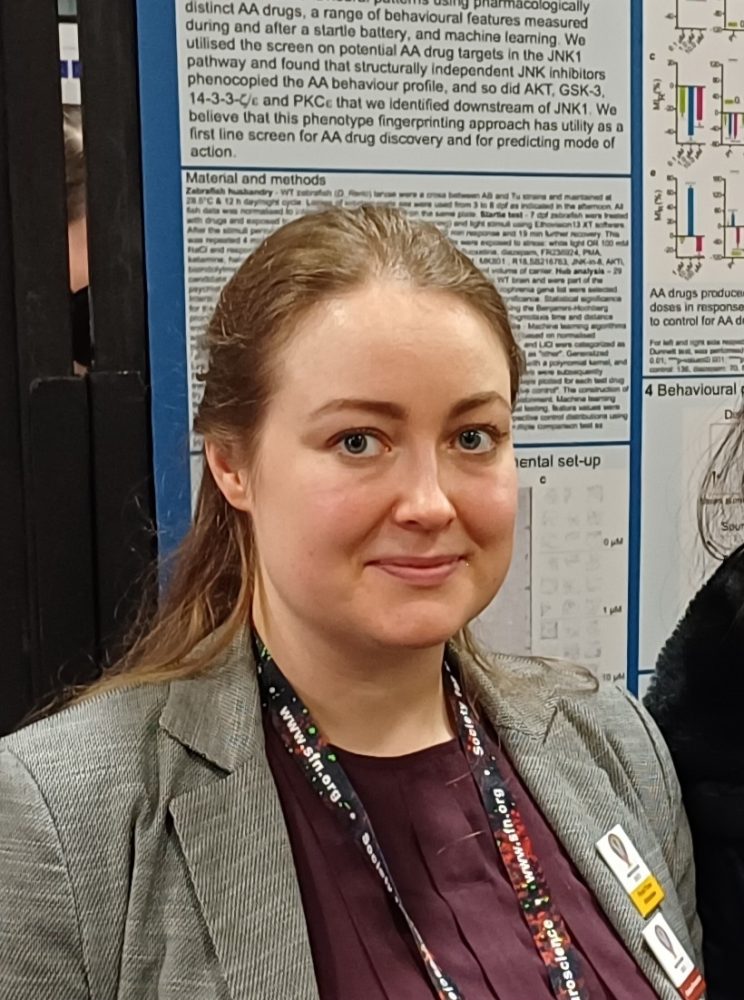The vicious cycle of inflammation, depression and anxiety

Depression and inflammation are familiar to most of us one way or another, but many are unfamiliar with how they are connected.
Depression is a very damaging disorder for both the individual and society; it’s a major cause of disability and negatively impacts lifespan. The main treatment options are anti-depressants and psychotherapy, but unfortunately about a third don’t respond to treatment.
Among risk factors for depression are childhood trauma, sex, recent life stressors, obesity, and hereditary factors. There’s high comorbidity between depression and anxiety, another damaging mental health affliction familiar to most. Inflammation is how your body responds to injury, the immune system picks up damage associated molecule patterns, DAMPs, and mounts a response to fix the issue. Cytokines are a major component, as they pass on signals and recruit a variety of cells for the response.
Look at the evolutionary factors
The prevailing theory on why inflammation and depression & anxiety are connected is evolutionary factors. Immunity mechanisms in the brain have a connection to stress seemingly derived from a drive to protect from environmental dangers.
Not only physical stress trigger DAMPs and cytokines, psychological stress does it too. Humans encountered far more environmental dangers in the past; about half the children died from infections. Being withdrawn, more vigilant, and avoiding people would’ve been useful behaviours to limit exposure to pathogens or other dangers after stressful situations. But in today’s urban world where pathogens are a rare danger and psychosocial stress abounds, we instead end up with depression and anxiety.
Inflammation and depression have a bidirectional relationship. Inflammation affects the brain, the immune response in depressed patients is altered, and both antidepressants and psychotherapy is immunomodulatory. People with autoimmune disorders are far more likely to be depressed, and victims of depression more likely to develop autoimmune disorders in turn.
How about environmental risks?
Environmental risk factors for depression are all pro-inflammatory: Childhood trauma affects inflammation long term, and the depression and inflammation overlap is especially prevalent in those who faced childhood adversity. Obesity is accompanied by chronic low grade inflammation and processed food diets are pro-inflammatory. Women are more sensitive to inflammation stress and mount larger responses, likely due to situational as well as biological factors.
Inflammation affects several regions and circuits in the brain. There’s higher levels of innate immune proteins in suicide victims, and a large subset of patients who suffer from depression and/or anxiety disorders have more inflammatory markers such as cytokines.
Giving cytokines to healthy individuals can induce depressive symptoms, and cytokine blockers can alleviate depression. Note, however, that depressed individuals are more susceptible to infections, and some have a suppressed immune response. Cytokines can decrease access to e.g. serotonin and dopamine, both decreased in depression, and stress dysregulates serotonin. The stress response axis, known to be overactive in mood and anxiety disorders, can be dysregulated by cytokines as well as continuous stressors over time.
The pivotal gut-brain axis
When discussing inflammation and mental health it would be remiss not to mention the bidirectional gut-brain axis. The gut is important for inflammation caused by stress, and its microbiome is altered in both depression and anxiety. Stress axis activation can increase intestinal permeability, which in its turn lets bacterial endotoxins enter the blood. Which causes peripheral inflammation that can enter the brain in several ways. We used to have more anti-inflammatory organisms in the gut, but they’ve largely been lost due to urbanisation and modern sanitation.
Is the connection all bad? Well, probiotics and prebiotics improve the gut microbiome and have been shown to help manage stress and mood in animal models. We also have limited, but promising, indications that it helps in humans as well.
Exercise is anti-inflammatory and helps treat depression. There’s also some studies that suggest yoga and meditation can ameliorate inflammation and improve mental health. Poor diet and sleep is known to make things worse.
The bidirectionality and complexity of the connections between inflammation and depression & anxiety make it a difficult field to study, but there’s also untapped potential. Some of the current topics of interest being pursued are: Can useful biomarkers for depression can be found from peripheral inflammatory markers? Can cytokine inhibitors be a treatment option for depressed individuals with high inflammation? How does psychosocial stress trigger DAMPS? There remains much to be discovered.
More details can be found from the references:
Beurel et al. The Bidirectional Relationship of Depression and Inflammation: Double Trouble. 2020
Peirce & Alviña. The role of inflammation and the gut microbiome in depression and anxiety. 2019
Lee & Giuliani. The Role of Inflammation in Depression and Fatigue. 2019
Miller & Raison. The role of inflammation in depression: from evolutionary imperative to modern treatment target. 2016
Kiecolt-Glaser et al. Inflammation: Depression Fans the Flames and Feasts on the Heat. 2015

Christel Sourander
Doctoral Researcher, Åbo Akademi
